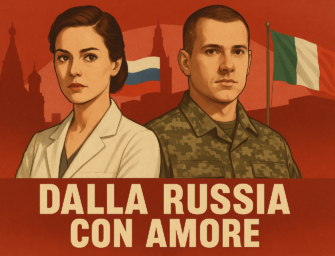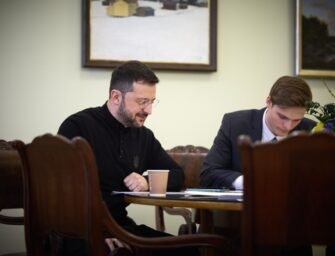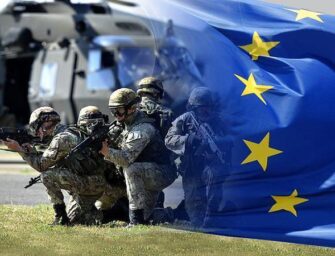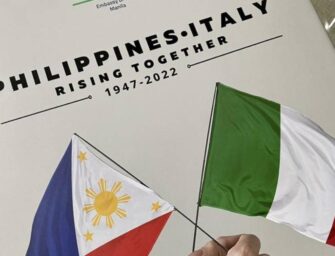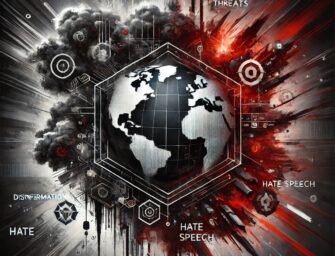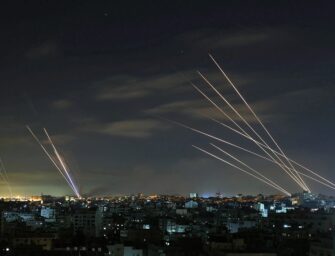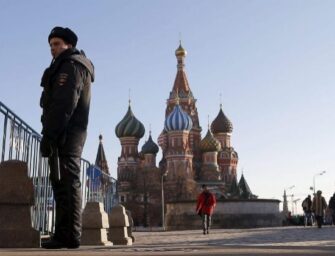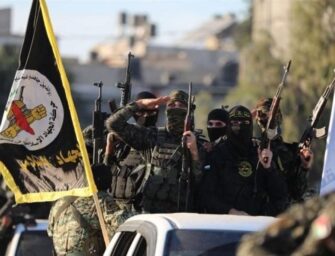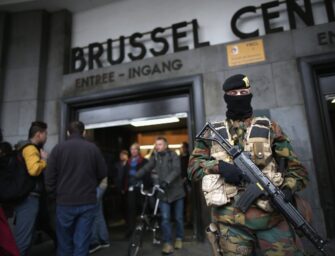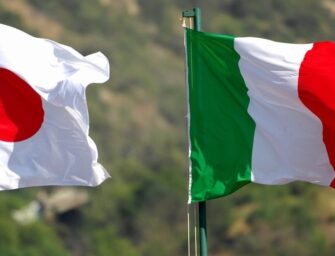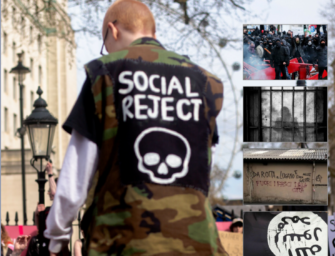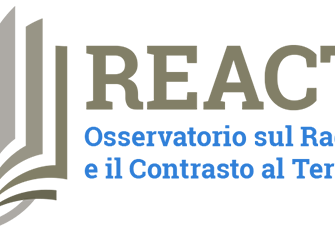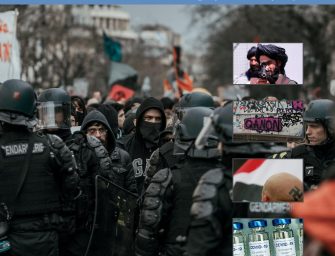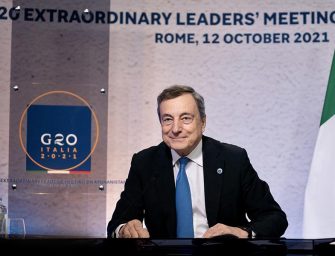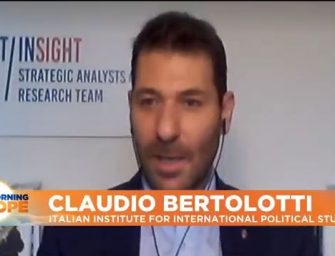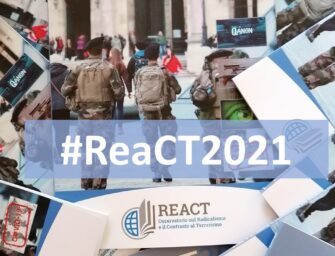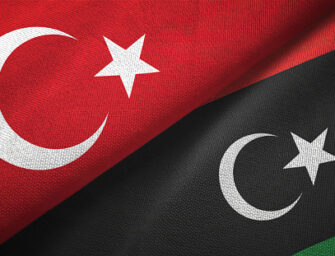“From Russia with Love”: New threats to Italy and Russia’s role in cyberspace, public health, disinformation, and espionage.
by Claudio Bertolotti.
Abstract
The article examines the main threats to Italian national security attributed to Russia, focusing on three strategic areas: cyber security, disinformation, and espionage. Russia emerges as one of the primary challenges for Italy in the cyber domain due to its ability to carry out targeted attacks aimed at acquiring sensitive information or disrupting critical infrastructure. Similarly, Moscow’s systematic use of disinformation serves as a tool to influence public opinion and political decisions in Italy, leveraging social media and traditional media to disseminate false or manipulated content. The issue of espionage is framed within the context of bilateral cooperation initiatives such as the 2020 operation “From Russia with Love,” during which risks related to the collection of sensitive information under the guise of healthcare assistance came to light. This aspect ties into emblematic cases such as the arrest of Walter Biot, an officer of the Italian Navy, accused of espionage on behalf of Russia. The article highlights the need for multidimensional counterstrategies to address these threats, combining advanced technologies, international cooperation, and enhanced institutional resilience.
Emergency situations, crises, and vulnerabilities: the perfect ground for emerging threats
The dynamics of international relations and global policies profoundly affect the competition between state and non-state actors, influencing political, social, and economic sectors. The assertiveness demonstrated by certain countries in the international arena is also contributing to redefining power balances at both regional and global levels. Events such as the COVID-19 pandemic, the conflict between Russia and Ukraine, and the energy crisis are already leaving a lasting impact, both for Italy and many other nations, with significant effects in economic and social spheres.
The COVID-19 pandemic severely tested Italy, exposing systemic vulnerabilities and latent critical issues. It triggered an unprecedented health crisis, with an exponential increase in infections and deaths, coupled with an overload on the healthcare system. This was accompanied by an economic and social crisis characterized by rising unemployment and a contraction in consumer spending, direct consequences of restrictive measures such as lockdowns, which led to the closure of numerous productive activities.
Before the full effects of the pandemic could be absorbed, the conflict in Ukraine broke out on February 24, 2022, initiated by the Russian invasion. This war sparked a new economic crisis, exacerbated by rising raw material costs and reduced trade flows. At the same time, it caused an international political crisis, with the imposition of sanctions against Russia and challenges in energy supplies for many European countries.
The resulting energy crisis further worsened the economic situation, leading to a significant increase in the prices of primary resources and challenges in energy access. These factors directly impacted the Italian economy, reducing the competitiveness of national businesses.
This context highlights the complexity of international relations and the volatility of alliances and rivalries, underscoring the unpredictability of events capable of disrupting access to energy resources and influencing their availability and prices. Such dynamics have substantial repercussions across social, political, and economic domains, underscoring the need for careful and strategic management of these global phenomena (Bertolotti, 2023).
Emerging threats to Italy’s security and Russia’s capabilities (and lines of action).
Italy’s security and defense are increasingly challenged by a range of emerging threats that manifest across various domains within the global context. Among these, cybercrime stands out as one of the most critical challenges. With the growing reliance on digital technologies, Italy’s critical infrastructure and businesses have become increasingly vulnerable to cyberattacks. These attacks, often executed using sophisticated methods, aim to steal sensitive information or compromise systems, causing significant damage. Russia, in particular, is considered one of the primary sources of these threats, leveraging cyberspace for espionage activities and interference in strategic infrastructure.
Industrial espionage poses an additional risk, targeting the flagship sectors of Italy’s production system and national expertise. In a highly competitive global environment, industries such as automotive, aerospace, defense, and energy are particularly exposed to such practices. Advanced technologies and cutting-edge innovations are frequently targeted by these attacks, with strategic consequences for the country’s competitiveness.
Italy’s national healthcare system is also vulnerable. Cyberattacks in this sector can disrupt essential services, jeopardize the personal data of patients and staff, and result in significant economic losses for healthcare organizations. These actions can have a devastating impact on public health, further exacerbating emergency situations.
Disinformation and propaganda represent another emerging threat, with the potential to manipulate public opinion through the dissemination of false or distorted information. Social media and traditional media are often exploited to create confusion and uncertainty, influencing political decisions and hindering crisis management. In an already fragile context, marked by the effects of the pandemic and the energy crisis, such dynamics can deepen social divisions, undermining stability and national cohesion.
Finally, the energy crisis emerges as a significant threat. Dependence on external resources and rising raw material prices have a direct impact on the Italian economy and the competitiveness of its businesses, complicating emergency management and decision-making processes for authorities (Bertolotti, 2023).
Russia’s Role
Russia positions itself as a key actor in the landscape of emerging threats to Italy. With extensive capabilities in cyber operations, Moscow employs advanced technologies to conduct hacking activities, deploy sophisticated malware, and exploit phishing and social engineering techniques. These tools, often supported by Advanced Persistent Threat (APT) groups linked to the Russian government, enable interference with protected systems and the acquisition of strategic information.
In the geopolitical arena, Russia has developed an integrated approach to strategic communication and digital diplomacy. As described by President Vladimir Putin in 2012, soft power is used to achieve foreign policy objectives without direct reliance on military tools. Organizations such as the “Russian World” and the “Gorchakov Fund of Public Diplomacy,” along with the Rossotrudnichestvo agency, play a central role in this strategy, operating through the dissemination of targeted information and alternative narratives on social networks.
During the COVID-19 pandemic, Russia intensified its propaganda efforts through the delivery of humanitarian aid to various countries, including Italy. These initiatives, communicated strategically through social media, were used to consolidate Russia’s influence on the international stage. This approach enabled the Kremlin to gain favor in strategic regions such as the Balkans, the Middle East, and Latin America, as well as within the European Union.
The combination of disinformation, propaganda, and cyber capabilities makes Russia a central actor in the dynamics of emerging threats, with significant impacts on global security and stability. For Italy, addressing these challenges requires coordinated and targeted strategies to protect critical infrastructure, safeguard social cohesion, and strengthen national resilience.
Inviting the spy into the house: the “From Russia with Love” operation. An analysis of dynamics and implications.
During the early stages of the COVID-19 pandemic, the Italian Army’s 7th Chemical, Biological, Radiological, and Nuclear Defense Regiment “Cremona” (CBRN) was engaged, between March and May 2020, in sanitization and decontamination activities. This effort included supporting reception centers for individuals arriving from abroad and sanitizing over 180 facilities in Lombardy. These operations also involved a Russian contingent sent as part of the “From Russia with Love” operation, which led to the creation of nine joint Italian-Russian task forces (Senate of the Republic, Doc. CLXIV no. 31, p. 85). Initially focused on the Bergamo province, the operation revealed vulnerabilities related to information collection by external actors, raising concerns that the aid offered could be used as a pretext to breach national security boundaries.
The Russian mission involved 104 personnel, including prominent epidemiologists Natalia Y. Pshenichnaya and Aleksandr V. Semenov. However, the Russian presence was subject to limitations: the original proposal of 400 personnel was reduced to 100 by the then-Minister of Defense, Lorenzo Guerini. Additionally, General Luciano Portolano, Commander of the Joint Operations Command, rejected requests to extend Russian operations to strategic sites such as military bases and government offices, including the Ghedi base (Brescia), used by NATO. The operations were restricted to hospitals and care facilities. During these activities, the Russian contingent made multiple attempts to collect virus samples and offered financial incentives to Italian researchers to obtain scientific data. A notable example was an offer of €250,000 to a director at Rome’s Spallanzani Hospital, which promoted the Russian vaccine “Sputnik” at the expense of the Italian “Reithera” project (Jacoboni, 2022).
The Context and Controversies.
The agreement between Russian President Vladimir Putin and Italian Prime Minister Giuseppe Conte was reached via telephone on March 21, 2020. However, the Russian intervention, perceived by Italy as a “blank check,” was carried out in an uncoordinated manner without adequately consulting the Italian government. The Russian contribution included military experts, specialists in biological and chemical threats, and technical units for the study of pathogens, but it lacked equipment specifically designed to detect COVID-19.
The sites chosen by the Russian contingent for sanitization raised concerns, as many were located near sensitive infrastructure, such as NATO bases housing nuclear arsenals. These factors led the Italian government to prematurely terminate the operation, viewing it as a potential national security risk.
Role of Russian Epidemiologists.
A notable aspect of the operation was the unauthorized presence of two Russian epidemiologists, Pshenichnaya and Semenov, both affiliated with Rospotrebnadzor, the Russian agency responsible for pandemic management. The two had previously worked in Wuhan and stated that their mission’s objective was to gain insight into how COVID-19 was being managed in other countries. However, two months after their departure from Italy, they published a report highly critical of Italy’s pandemic management (Santarelli, 2022), raising questions about the true purpose of their presence (Bertolotti, 2023).
Final considerations.
The “From Russia with Love” operation raises questions about the management of international aid in emergency contexts and the risks associated with national security. While the Russian intervention was officially presented as a humanitarian contribution, multiple actions suggest it may have also served as a tool for gathering strategic information and consolidating Moscow’s geopolitical influence. These dynamics highlight the importance of rigorous coordination and careful risk assessment in international cooperation during crisis situations.
Analysis of the Russian operation in Italy: a hybrid warfare strategy.
The Russian military intervention in Italy during the COVID-19 pandemic represents a practical example of the application of so-called “hybrid warfare,” employed by Moscow to gain a temporary strategic advantage within the context of the global health emergency (Santarelli, 2022). Unlike China, which limited its support to consultations via videoconference, Italy welcomed and granted significant operational freedom to Russian military personnel. This allowed them to gather valuable information on the management and spread of the virus, which was later utilized for both domestic and international propaganda campaigns, including the promotion of the Russian vaccine “Sputnik V.”
The Russian operation appeared to pursue three main objectives. First, the acquisition of strategic information through espionage activities, aiming to develop a pandemic management strategy based on knowledge obtained in Italy. Second, domestic and international propaganda, designed to showcase Russia’s progress and promote the adoption of the “Sputnik” vaccine by other countries, including Italy. Third, an “information warfare” campaign aimed at discrediting Italy’s handling of the health crisis, leveraging contributions and statements from prominent Russian epidemiologists.
Implications for National Security.
The “From Russia with Love” operation underscores the need for a thorough assessment of national security implications in emergency situations. This case provides a concrete example of how external actors can exploit critical contexts to infiltrate intelligence networks, gather strategic data, or penetrate national security systems. Under the guise of humanitarian assistance, such operations can undermine internal stability and bolster the geopolitical influence of third countries.
Italy’s experience highlights the importance of maintaining strict oversight and establishing clear boundaries in international collaborations during emergencies to mitigate risks to the integrity and security of the state (Bertolotti, 2023).
Bibliography
Bertolotti, C. (2023). Le minacce emergenti per l’Italia e il ruolo della Russia (cyber, sanitaria, disinformazione, spionaggio), in “La Russia nel contesto post-bipolare (RUSPOL). I rapporti con l’Europa tra competizione e cooperazione”, 2° Geopolitical Brief, Geopolitica.info, la Sapienza, Ministero degli Affari Esteri e della Cooperazione Internazionale, Roma.
Bērziņš, J. (2014). Russia’s New Generation Warfare in Ukraine: Implications for Latvian Defense Policy, Policy Paper No 02, (Riga: National Defence Academy of Latvian Center for Security and Strategic Research), 5.
Putin, V. (2012). Russia and the Changing World. Rossiyskaya Gaseta, 29 febbraio 2012.
Santarelli, M., (2022). Dalla Russia con amore. Aiuti covid o spionaggio dalla Russia? Cosa c’è dietro la missione dell’esercito russo a Bergamo, Agenda Digitale, 17 gennaio 2022.
Senato della Repubblica (2020), XVIII Legislatura, Doc. CLXIV n. 31, “Relazione sullo stato della spesa, sull’efficacia nell’allocazione delle risorse e sul grado di efficienza dell’azione amministrativa svolta dal ministero della Difesa, corredata del rapporto sull’attività di analisi e revisione delle procedure di spesa e dell’allocazione delle relative risorse in bilancio”, p. 85.
Tsvetkova, N., Rushchin D. (2021). Russia’s Public Diplomacy: From Soft Power to Strategic Communication. Journal of Political Marketing, 20(1), 50-59.








